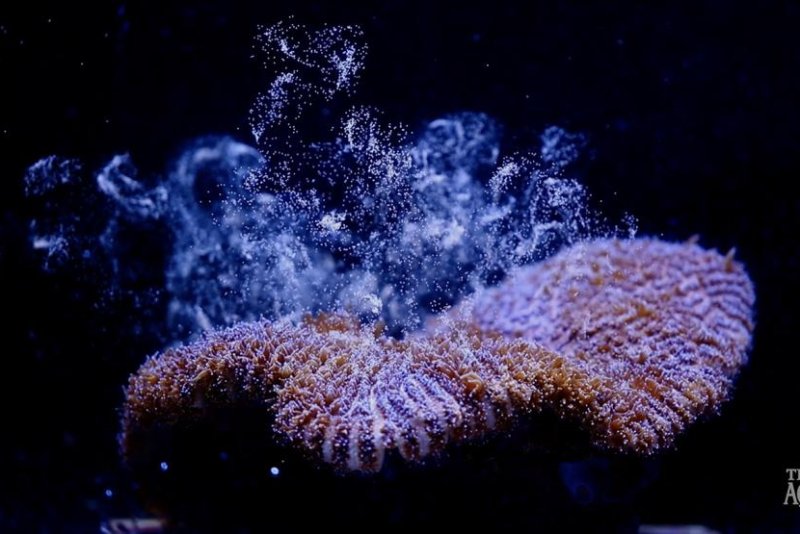Scientists plan to raise the newly spawned coral in the laboratory long enough for it to have a good chance of survival once in its natural environment. Photo courtesy of The Florida Aquarium
Aug. 21 (UPI) -- Scientists in Florida became the first to induce Atlantic coral reproduction in a lab setting, The Florida Aquarium announced Wednesday.
The facility's Center for Conservation in Apollo Beach induced the spawning of coral this week as part of Project Coral. The scientists believe the breakthrough could be the key to saving depleted corals in the Florida Reef Tract, also known as America's Barrier Reef.
"When history is made, there is hope, and today's scientific breakthrough by The Florida Aquarium's team of coral experts gives us real hope that we can save the Florida Reef Tract from extinction," said Roger Germann, CEO and president of The Florida Aquarium.
"And, while many coral experts didn't believe it could be done, we took that challenge to heart and dedicated our resources and expertise to achieve this monumental outcome. We remain fiercely committed to saving North America's only barrier reef and will now work even harder to protect and restore our Blue Planet."
The Florida Aquarium partnered with scientists at the Horniman Museum and Gardens in London to undertake the project.
Previously, researchers had only been able to induce Pacific coral species to spawn in a laboratory setting. To prompt Atlantic coral reproduction, the scientists recreated the natural environment found near the Florida Reef Tract, including the timing of sunsets, sunrises, moonsets and moonrises.
"The massive and fully synchronized spawning at The Florida Aquarium's Center for Conservation, which occurred exactly at the predicted wild spawning time, indicated perfect aquatic conditions for pillar corals in our Project Coral system," senior coral scientist Keri O'Neil said. "When you have great husbandry, great water quality, and all of the right environmental cues, this is what you can do, you can change the game for coral restoration."
Project Coral plans to raise juvenile corals in the lab long enough for them to have a better chance of survival once introduced into their natural environment.















